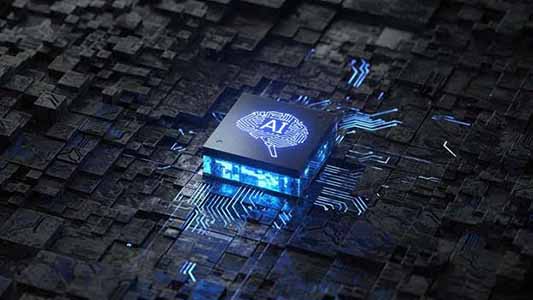Fact just produced a market study report on deep learning chipsets market.According to MR, deep learning chipset sales were valued at US$ 4.7 billion globally in 2022. By the conclusion of the projection period, the market is anticipated to have reached a valuation of US$ 72.8 billion, with a projected CAGR of 27.9% from 2023 to 2033.
The market for deep learning chipsets in System on Chip (SOC) production is anticipated to develop at a compound annual growth rate (CAGR) of more than 27.5% from 2023 to 2033, potentially yielding considerable revenue.
Key Factors:
The rise in the demand for deep learning in various industries such as healthcare, automobiles, consumer electronics, and aerospace & defense has played a significant role in the expansion of demand for the deep learning chipset in recent years. The surge in demand is due to the high volumes of data that are used by corporations to run deep learning and machine learning models to understand consumer behavior.
Deep learning chipsets are also increasingly being used in a wide variety of consumer electronics such as AR/VR headsets, smart speakers, and smartphones that utilize deep learning chips for their AI processing.
Along with the increase in the use of deep learning chips in consumer electronics, the emergence of quantum computing and the enhancement in the implementation of deep learning chips in robotics is projected to expand the market. Deep learning has been increasingly being implemented in smart home appliances such as smart speakers, smart bulbs, and smart thermostats, as deep learning can be used to collect user’s daily data from the devices, and then through using their data, consumers can be provided with appropriate products and functions according to their needs.
Competitive Analysis :
technologies to develop advanced algorithms for better functioning of their deep learning chips.
A few of the recent developments in the market are :
- In March 2022 – Google and UC Berkley announced that they have found a way to use artificial intelligence to design faster and smaller chips. Using this, google aims to produce smaller and more efficient chips.
- In May 2020 – Neuchips Corporation, announced the world’s first recommendation engine RecAccel which can perform 500,000 interfaces per second.
- In December 2019 – Intel Corporation acquired HABANA labs ltd., an Israeli start-up that is working on deep learning algorithms. This acquisition will strengthen the AI capability of Intel Corporation.
- In November 2019 – Intel Corporation launched Nervana Neural Network processors for deep learning. This chip will enable intel to strengthen itself in the deep-learning chip market.












